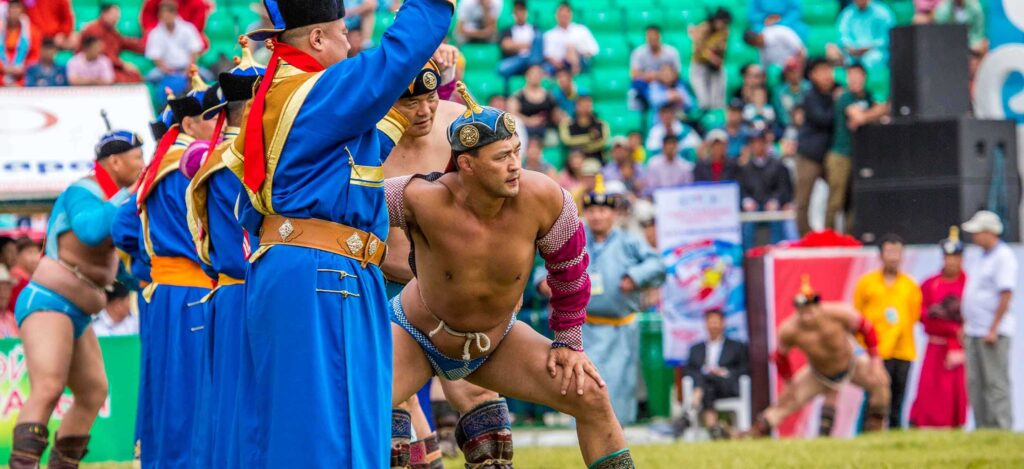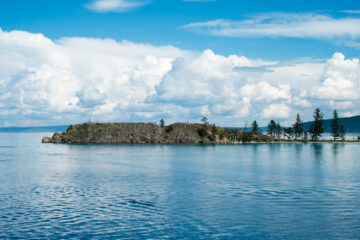With its rich cultural heritage and deep-rooted traditions, Mongolia is home to various celebrations and festivals throughout the year. These events honor the nation’s history and bring families and communities together. Join us as we explore 11 of the most significant festivals that showcase the unique spirit of Mongolia.

1. Tsagaan Sar (Lunar New Year)
Tsagaan Sar, or Lunar New Year, is the most important holiday in Mongolia. Celebrated in late January or early February, this festival marks the arrival of spring and the new lunar year. Families gather to honor their ancestors, share traditional meals, and exchange gifts. The holiday is characterized by a festive atmosphere, with people wearing traditional clothing and enjoying special dishes like buuz (steamed dumplings) and arak (fermented milk).
2. Naadam Festival
Held every July, the Naadam Festival celebrates Mongolia’s “Three Manly Games”: wrestling, horse racing, and archery. This public holiday showcases the country’s athletic prowess and cultural pride. Locals and tourists flock to arenas and racetracks to witness thrilling competitions, traditional music, and colorful parades that reflect the heart of Mongolian culture.
3. Nauryz
Nauryz celebrated on March 21, marks the arrival of spring and the Persian New Year. This festival symbolizes renewal and harmony. Families gather to share traditional meals, engage in cultural performances, and enjoy various community activities. Nauryz serves as a reminder of the importance of family and friendship as the winter months fade.
4. Eagle Hunting Festival
In October, the breathtaking landscapes of the Altai Mountains become the backdrop for the Eagle Hunting Festival. This event celebrates the ancient practice of eagle hunting, where skilled hunters demonstrate their prowess with trained golden eagles. Visitors can witness breathtaking displays, engage with local hunters, and enjoy traditional music and dance performances, making this a unique cultural experience.
5. Mongolian Independence Day
Mongolian Independence Day, celebrated on July 11, commemorates the country’s liberation from Chinese rule in 1921. The day features grand parades, cultural performances, and various national festivities. It is a time for Mongolians to express their national pride and reflect on their journey toward independence.
6. Buddha Day (Sagaalgan)
Buddha Day, or Sagaalgan, is a significant religious observance that marks the birth, enlightenment, and death of Buddha. This day is celebrated by Buddhists throughout Mongolia and involves rituals, prayers, and temple offerings. The event is characterized by a serene atmosphere, where devotees gather to reflect on spiritual teachings and seek blessings for the year ahead.
7. Harvest Festival
As the summer comes to a close, the Harvest Festival is celebrated in late September to early October. This festival expresses gratitude for the land’s bounty and farmers’ hard work. Communities gather to share meals, engage in traditional dances, and enjoy local music, creating a festive spirit that honors the agricultural roots of Mongolia.
8. Ulaanbaatar International Festival of Arts
The Ulaanbaatar International Festival of Arts is an annual event that showcases the artistic talents of both Mongolian and international artists. With performances ranging from music and dance to theater and visual arts, this festival creates a vibrant cultural exchange that enriches the capital city’s artistic landscape.
9. International Camel Festival
The International Camel Festival, held in the Gobi Desert, celebrates the iconic Bactrian camel. This unique festival features camel races, traditional music, and cultural activities, highlighting the significance of camels in Mongolian nomadic life. It’s a fun and engaging way to experience the connection between people and their environment.
10. Shaman Festival
The Shaman Festival honors Mongolia’s shamanic traditions and the spiritual practices of the nomadic people. This festival includes rituals, performances, and discussions on the role of shamanism in contemporary Mongolian culture. It provides an opportunity to explore the ancient beliefs that continue to influence the lives of many today.
11. Zul (Winter Festival)
Celebrated in December, Zul marks the end of winter and the sun’s return. This festival features various cultural activities, including traditional games, music, and food. It’s a joyous occasion that brings communities together to celebrate the changing seasons and hope for warmer days.
Mongolia’s festivals are a testament to the resilience and vibrancy of its culture. Each celebration offers a glimpse into the Mongolian people’s lives, beliefs, and traditions, making it an unforgettable destination for travelers seeking authentic experiences. Whether you’re drawn to the athletic competitions of Naadam or the spiritual reflections of Buddha Day, there’s a festival for everyone to enjoy in this beautiful land.


0 Comments